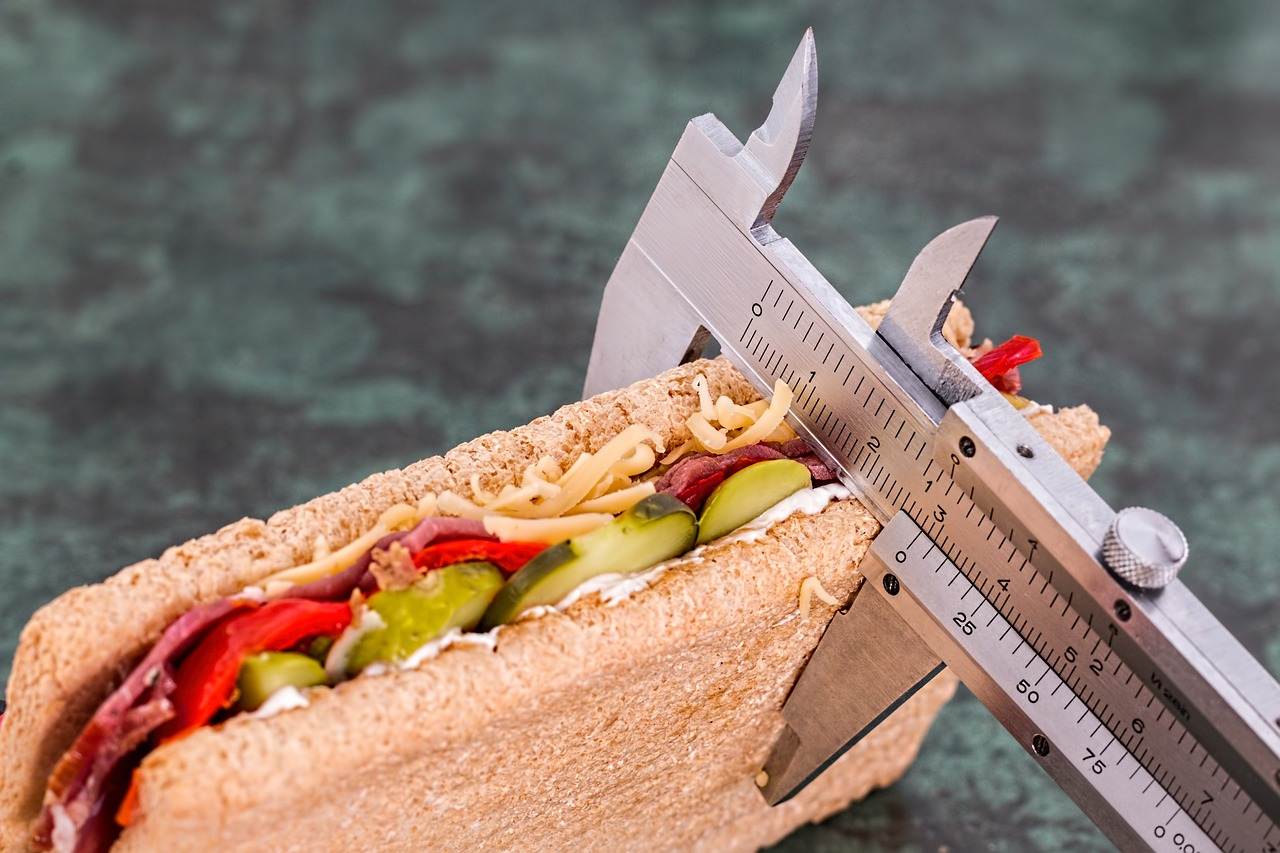Exploring the Role of BMR in Weight Loss
If you’re looking for a way to shed those stubborn pounds quickly and effectively, understanding your Basal Metabolic Rate (BMR) could prove to be an invaluable tool. This crucial measure, often overlooked in the realm of weight loss, can be your secret weapon in accelerating your fitness journey. With a thorough comprehension of BMR and how it plays into weight loss, you can tailor your diet and exercise regime to maximize results, and finally take control of your weight in just a week. So let’s navigate through and unleash the potential of BMR in your weight loss saga.
Understanding BMR
Understanding the concept of BMR is crucial in managing your weight. You often come across the term BMR while researching weight loss or fitness tips, but what exactly does it mean?
Defining Basal Metabolic Rate (BMR)
Basal Metabolic Rate, also known as BMR, refers to the number of calories your body requires to perform its most basic functions when at rest. These functions include breathing, circulating blood, controlling body temperature, and growth and repair of cells. In essence, BMR is the minimum number of calories you need to sustain life in a non-active state.
The Science Behind BMR
The science behind BMR is straightforward. Your body needs energy for everything it does, and that energy comes from the food we eat. Our bodies convert the food into heat energy, or calories, which is measured in BMR. Essentially, BMR is the rate at which your body burns calories while at rest.
Factors Influencing BMR
Many factors can influence your BMR. These include age, sex, weight, body composition, genetic factors, and overall health. Generally, BMR reduces with age, is higher in men than women, decreases with weight loss, and increases with muscle mass.
How BMR Affects Body Weight
Understanding how BMR affects body weight is crucial for any weight-management strategy.
The Interrelation Between BMR and Weight
The key to understanding the interrelation between BMR and body weight lies in the energy balance. If you consume more calories than your body burns, you’ll gain weight. If you burn more calories than you consume, you’ll lose weight.
How BMR Impacts Your Calorie Needs
Your BMR impacts your calorie needs as it constitutes a significant portion of your total daily energy expenditure (TDEE), which is the total number of calories you burn each day. By understanding your BMR, you can determine how many calories you need to maintain, lose, or gain weight.
Impact of Higher and Lower BMR on Body Weight
A higher BMR means you burn more calories at rest, making it easier to maintain weight or lose weight. Conversely, a lower BMR means you burn fewer calories at rest, making it more challenging to maintain weight or lose weight.

Role of BMR in Weight Loss
Understanding the role of BMR in weight loss can help optimize your weight loss plan to match your body’s unique needs.
The Concept of Calorie Deficit and Its Relation to BMR
A calorie deficit occurs when you burn more calories than you consume, leading to weight loss. Knowing your BMR can help you create a precise calorie deficit, as you’ll know how many calories your body needs for basic functions.
Calculating BMR for Weight Loss
Calculating your BMR for weight loss involves taking your BMR and subtracting the number of calories you want to cut to create a calorie deficit.
How Increasing BMR Can Aid Weight Loss
Since a higher BMR means you’re burning more calories at rest, increasing your BMR can aid in weight loss. Exercises that build muscle are particularly beneficial in increasing BMR as muscle burns more calories than fat.
Using BMR in Weight Loss Strategies
Understanding your BMR can help you create a personalized weight loss strategy.
BMR and Diet Planning
When planning your diet, it’s essential to consider your BMR. It will help you determine how many calories you need to maintain, lose or gain weight.
BMR and Exercise Plans
Knowing your BMR can also help you create an effective exercise plan. By understanding how many calories you burn at rest, you can determine how many additional calories you need to burn through exercise.
Importance of Maintaining Muscle Mass to Boost BMR
Maintaining muscle mass is important for improving BMR because muscle mass burns more calories than fat, even at rest. By focusing on strength training and keeping protein intake high, you can maintain and increase your muscle mass, boost your BMR, and aid in weight loss.

Benefits of Understanding Your BMR in Weight Loss
Understanding your BMR can provide several benefits in your weight loss journey.
Customizing Your Weight Loss Plan
Each person’s BMR is unique, so understanding yours allows you to customize your weight loss plan to fit your body’s specific needs.
Maintaining Weight Loss in Long-term
Knowing your BMR can also help you maintain your weight loss in the long term. It provides you a benchmark of how many calories you should consume to sustain your bodily functions without gaining weight.
Predicting Weight Loss Progression
Your BMR can be a useful tool in predicting your weight loss progression. By knowing how many calories your body burns at rest, you can anticipate how various changes in your diet and exercise plan will affect your weight.
BMR and Weight Loss: Common Misconceptions
Despite the critical role BMR plays in weight loss, misconceptions about it persist.
Myths About Slow Metabolism and Weight Gain
One of the biggest myths is that people with slow metabolism are predisposed to gain weight. While BMR does play a role, weight gain usually results from consuming more calories than you burn.
Starvation Mode and Its Effect on BMR
Another common misconception is that eating too few calories will make your body enter ‘starvation mode,’ causing your BMR to drop drastically. While it’s true that eating very few calories can lead to a slight decrease in BMR, the body’s primary response is to utilise stored fat for energy.
Common Mistakes When Calculating BMR
Common mistakes when calculating BMR include not accounting for activity levels, underestimating total calorie intake, and overestimating the influence of muscle mass on BMR.

How to Increase Your BMR
While some factors affecting BMR, like age and genetics, are out of your control, others can indeed be influenced.
Lifestyle Changes to Increase BMR
Simple lifestyle changes like getting plenty of sleep, drinking enough water, and avoiding stress can positively impact your BMR.
Exercise Strategies to Boost BMR
regular exercise, particularly strength training, can help increase your BMR by increasing your muscle mass.
Nutrition’s Role in BMR Enhancement
Eating protein-rich meals can boost your BMR, as the body uses more energy to digest protein compared to fats or carbohydrates.
BMR Versus BMI in Weight Loss
It’s important to distinguish between BMR and BMI when it comes to weight loss.
Difference Between BMR and BMI
While BMR represents the number of calories your body needs to perform basic functions, BMI (Body Mass Index) is an indicator of whether you’re at a healthy weight for your height.
Role of BMI in Weight Loss
BMI can be useful in weight loss as an initial indicator of where you stand weight-wise and whether you need to lose weight in the first place.
Interpreting BMR and BMI Together for Weight Loss
Interpreting BMR and BMI together can give you a more holistic picture of your bodily needs and what your weight loss strategy should be.
Calculating BMR Accurately
Accurately calculating your BMR is crucial in making informed decisions about your weight loss plan.
Methods to Calculate BMR
Several formulas, like the Harris-Benedict Equation or Mifflin-St Jeor Equation, can help calculate BMR accurately.
Tools for Accurate BMR Calculation
Online tools or apps that use these formulas can help you calculate your BMR accurately.
Factors to Consider for Accurate BMR Calculation
To get an accurate BMR calculation, you need to input correct data regarding your age, sex, weight, and height. Remember that BMR is just one part of the puzzle; it doesn’t account for physical activity or the type of calories consumed.
BMR and Weight Loss: A Case Study
To further understand the role of BMR in weight loss, let’s look at a case study.
Introduction to the Case Study
Consider a 30-year old woman, who led generally sedentary lifestyle and wanted to lose weight. She discovered that her BMR was relatively low, which made it harder for her to lose weight through just diet changes.
Strategies Used and Their Relevance to BMR
She then embarked on a fitness plan that prioritised strength training to increase muscle mass and hence her BMR. She also tailored her diet based on her BMR and aimed to stay in a calorie deficit.
Results and Lessons from the Case Study
Over a period, she succeeded in losing weight, improving fitness, and raising her BMR. Her case showed how understanding and strategically working with your BMR can aid in weight loss journey.
In conclusion, your BMR is a vital tool in managing weight and achieving weight loss targets. By understanding your BMR, you can personalise your lifestyle changes to optimise your weight loss outcomes. Understanding your BMR is not a magic bullet for weight loss, but it is an excellent first step in the right direction.

